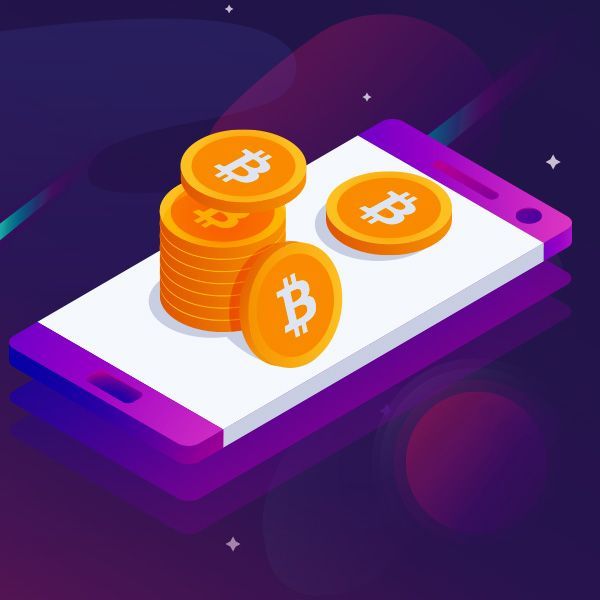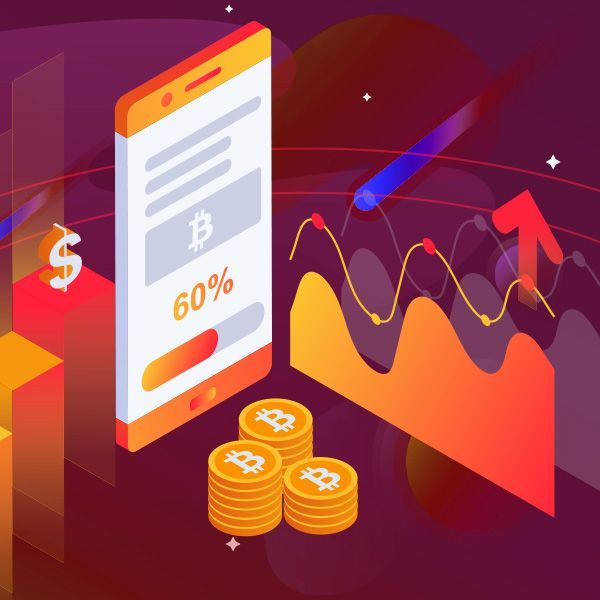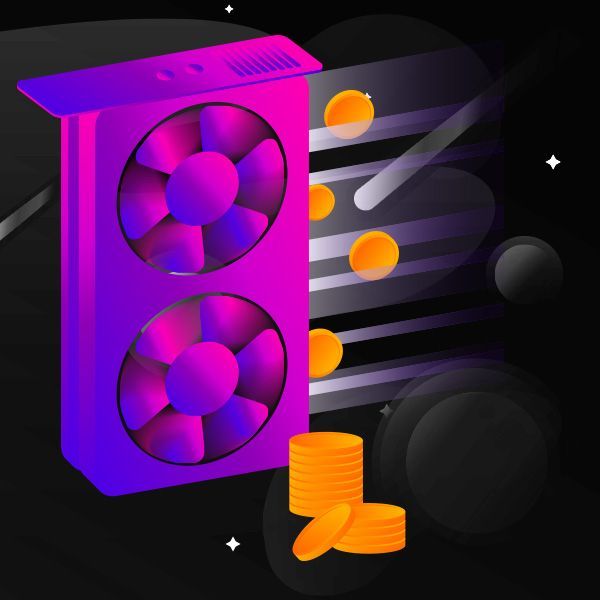What is Transaction Fee?
Let's find out Transaction Fee meaning, definition in crypto, what is Transaction Fee, and all other detailed facts.
A transaction fee is a particular payment that a user must pay in return for using the blockchain to complete a transaction. The transaction takes place from one cryptocurrency wallet to another.
To specify, originally, transaction fees were developed to manage fraudulent acts on the Bitcoin network.
As an example, all Bitcoin transactions are routed via a backlog known as the memory pool, sometimes known as the mempool. Therefore, if the mempool is full, the miners will decide which transactions to validate first.
Keeping that in mind, usually, higher-fee cryptocurrency transactions are handled first. As a result, some Bitcoin users may desire to boost fees if they believe their transaction will be completed in a quicker manner.
Ethereum costs, on the other hand, are calculated in gas, which is a minuscule part of ETH. By comparing Ethereum and Bitcoin you would notice that transaction fees are more essential in Ethereum. This is because it offers smart contracts, decentralized apps, and other, more advanced features.
To specify, Satoshi Nakamoto, the creator of Bitcoin, revealed transaction fees after being influenced by Adam Back’s hash system. The hash system was supported by the concept of the proof-of-work (PoW) consensus algorithm. Since then, other blockchains have followed the steps of Bitcoin and implemented similar fees as a way of managing the process of mining.
Essentially, transaction fees are quite adaptable and can differ depending on how busy the blockchain is at the given moment. Users that want to speed up a transaction may choose to pay a higher transaction fee. In that case, miners who are compensated to validate transactions will then often validate that particular transaction first.
Cryptocurrency transactions are <a href=https://www.bitdegree.org/"//crypto//learn//crypto-terms//what-is-decentralization/">decentralized, differently from <a href=https://www.bitdegree.org/"//crypto//learn//crypto-terms//what-is-fiat/">fiat money<\/strong><\/a>. Decentralization indicates that no <a href=https://www.bitdegree.org/"//crypto//learn//crypto-terms//what-is-central-bank/">central bank<\/strong><\/a> or body oversees or regulates the transaction.<\/p>\n<p>Transactions do not have a set time that it takes to be recorded on the blockchain. The size of the transaction fee that was paid as well as the network being used are the two main indicators. Speaking of which, a transaction might take a few hours to show up if the traffic is very high.<\/p>\n<p>On the flip side, it can be only a few minutes or even go through in an instant.<\/p>\n<p>If there are speculations about whether or not the transaction had been completed, users are always able to check the status on the distributed ledger through the <a href=https://www.bitdegree.org/"//crypto//learn//crypto-terms//what-is-block-explorer/">block explorer<\/strong><\/a> of the coin that was sent.<\/p>\n<p>It is important to note though, that a <a href=https://www.bitdegree.org/"//crypto//learn//crypto-terms//what-is-private-key-secret-key/">private key<\/strong><\/a> is needed to successfully complete the transaction.<\/p>\n<p>Furthermore, peers conduct transactions with one another utilizing <a href=https://www.bitdegree.org/"//crypto//learn//crypto-terms//what-is-wallet/">cryptocurrency wallets<\/strong><\/strong><\/a>. The person initiating the transaction sends funds from the public address to another account.<\/p>\n<p>The individuals that add <a href=https://www.bitdegree.org/"//crypto//learn//crypto-terms//what-is-block/">blocks of the transaction, on the other hand, are usually referred to as validators or miners.<\/p>\n<p>In addition, prior to being distributed on the distributed ledger, the transactions are <a href=https://www.bitdegree.org/"//crypto//learn//crypto-terms//what-is-encryption/">encrypted. The identity of the sender remains anonymous and private, while the particular amount of the transaction is open to the public.<\/p>","definition":"A transaction refers to the process where users exchange cryptocurrencies on a blockchain.","status":"published","meta_title":"What is Transaction (TX)? Definition & Meaning | Crypto Wiki","meta_description":"Transaction (TX) meaning: Transaction (TX) - A transaction refers to the process where users exchange cryptocurrencies on a blockchain.","meta_keywords":null}" :model="{"id":787,"wikipedia_url":"https:\/\/en.wikipedia.org\/wiki\/Fee","level":"easy","author_id":1,"created_at":"2023-06-19T06:59:00.000000Z","updated_at":"2023-12-17T09:22:22.000000Z","slug":"what-is-transaction-fee","title":"What is Transaction Fee?","section":"T","keyword":"Transaction Fee","content":"<p>A <strong>transaction fee<\/strong> is a particular payment that a user must pay in return for using the <a href=https://www.bitdegree.org/"//crypto//learn//crypto-terms//what-is-blockchain/">blockchain to complete a transaction. The transaction takes place from one <a href=https://www.bitdegree.org/"//crypto//learn//crypto-terms//what-is-wallet/">cryptocurrency wallet<\/strong><\/a> to another.<\/p>\n<p>To specify, originally, transaction fees were developed to manage fraudulent acts on the Bitcoin network.<\/p>\n<p>As an example, all Bitcoin transactions are routed via a backlog known as the <strong>memory pool,<\/strong> sometimes known as the <a href=https://www.bitdegree.org/"//crypto//learn//crypto-terms//what-is-mempool/">mempool. Therefore, if the mempool is full, the <a href=https://www.bitdegree.org/"//crypto//learn//crypto-terms//what-is-miner/">miners will decide which transactions to validate first.<\/p>\n<p>Keeping that in mind, usually, higher-fee cryptocurrency transactions are handled first. As a result, some <a href=https://www.bitdegree.org/"https:////www.bitdegree.org//crypto//buy-bitcoin-btc/">Bitcoin users may desire to boost fees if they believe their transaction will be completed in a quicker manner.<\/p>\n<p><a href=https://www.bitdegree.org/"https:////www.bitdegree.org//crypto//buy-ethereum-eth/">Ethereum costs, on the other hand, are calculated in gas, which is a minuscule part of ETH. By comparing Ethereum and Bitcoin you would notice that transaction fees are more essential in Ethereum. This is because it offers <a href=https://www.bitdegree.org/"//crypto//learn//crypto-terms//what-is-smart-contract/">smart contracts<\/strong><\/a>, <a href=https://www.bitdegree.org/"//crypto//learn//crypto-terms//what-are-decentralized-applications-dapps/">decentralized apps<\/strong><\/a>, and other, more advanced features.<\/p>\n<p>To specify, <a href=https://www.bitdegree.org/"//crypto//learn//crypto-terms//who-is-satoshi-nakamoto/">Satoshi Nakamoto<\/strong><\/a>, the creator of Bitcoin, revealed transaction fees after being influenced by <a href=https://www.bitdegree.org/"//crypto//learn//crypto-terms//who-is-adam-back/">Adam Back’s<\/strong><\/a> hash system. The hash system was <strong>supported by<\/strong> the concept of the <a href=https://www.bitdegree.org/"//crypto//learn//crypto-terms//what-is-proof-of-work-pow/">proof-of-work (PoW)<\/strong><\/a> consensus algorithm. Since then, other blockchains have followed the steps of Bitcoin and implemented similar fees as a way of managing the process of mining.<\/p>\n<p>Essentially, transaction fees are quite adaptable and can differ depending on how busy the blockchain is at the given moment. Users that want to speed up a transaction may choose to pay a higher transaction fee. In that case, miners who are compensated to validate transactions will then often validate that particular transaction first.<\/p>","definition":"is a payment that a user is obligated to pay in return for using the blockchain to complete a transaction.","status":"published","meta_title":"What is Transaction Fee? Definition & Meaning | Crypto Wiki","meta_description":"Transaction Fee meaning: Transaction Fee - is a payment that a user is obligated to pay in return for using the blockchain to complete a transaction.","meta_keywords":null,"author":{"id":1,"user_id":1,"created_at":"2023-05-03T14:30:55.000000Z","updated_at":"2023-05-11T07:18:20.000000Z","title":"Editor-In-Chief","slug":"aaron-s-editor-in-chief","description":"<p>Having completed a Master’s degree on Economics, Politics & Culture for the East Asia region, Aaron has written scientific papers with a comparative analysis of the differences between US’ Western and Japan’s Collective forms of capitalism, 1945-2020.<\/p>\n<p>With close to a decade of experience in the FinTech industry, Aaron understands all of the biggest issues and struggles that crypto enthusiasts face. He’s a passionate analyst who is concerned with data-driven and fact-based content, as well as that which speaks to both Web3 natives and industry newcomers.<\/p>\n<p>Aaron is the go-to person for everything and anything related to digital currencies. With a huge passion for blockchain & Web3 education, Aaron strives to transform the space as we know it, and make it more approachable to complete beginners.<\/p>\n<p>Aaron has been quoted by multiple established outlets, and is a published author himself. Even during his free time, he enjoys researching the market trends, and looking for the next supernova.<\/p>","user":{"id":1,"first_name":"Aaron","last_name":"S.","email":"aaron@bitdegree.org","email_sanitized":"aaron@bitdegree.org","email_verified_at":"2023-12-01T09:40:20.000000Z","must_verify_email":false,"is_registered_with_wallet":false,"status":"active","country":"LT","last_connected_ip":"88.119.132.125","image_id":2641,"referral_token":"05TMu2NysXOCn525","referred_by":null,"created_at":"2023-05-03T14:30:55.000000Z","updated_at":"2024-01-09T15:22:21.000000Z","full_name":"Aaron S."}}}" :chapter-list="[{"id":1,"title":"Blockchain","slug":"blockchain","updated":null,"chapter":"crypto\/assets\/crypto-book\/chapters\/learn-blockchain.jpg","chapter_simple":"crypto\/assets\/crypto-book\/chapters-simple\/blockchain-101.jpg","rating":100,"sections":[{"chapter_id":1,"order":1,"slug":"what-is-blockchain","title":"What is the Blockchain?","status":"published","modified_content":null},{"chapter_id":1,"order":2,"slug":"decentralized-blockchain","title":"Anonymous & Decentralized Blockchains: The Cornerstone of Crypto","status":"published","modified_content":null},{"chapter_id":1,"order":3,"slug":"blockchain-transaction","title":"What is a Blockchain Transaction in Crypto?","status":"published","modified_content":null},{"chapter_id":1,"order":4,"slug":"crypto-fees","title":"The Different Types of Crypto Fees Explained","status":"published","modified_content":null},{"chapter_id":1,"order":5,"slug":"what-is-bridging-in-crypto","title":"The Key Notion Behind the Concept of Bridging in Crypto","status":"published","modified_content":null},{"chapter_id":1,"order":6,"slug":"types-of-blockchains","title":"Different Types of Blockchains: What to Look Out For?","status":"published","modified_content":null}]},{"id":2,"title":"Cryptocurrencies","slug":"cryptocurrencies","updated":null,"chapter":"crypto\/assets\/crypto-book\/chapters\/learn-cryptocurrencies.jpg","chapter_simple":"crypto\/assets\/crypto-book\/chapters-simple\/cryptocurrencies-101.jpg","rating":100,"sections":[{"chapter_id":2,"order":1,"slug":"what-is-a-cryptocurrency","title":"What is a Cryptocurrency?","status":"published","modified_content":null},{"chapter_id":2,"order":2,"slug":"how-does-cryptocurrency-work","title":"How Does Cryptocurrency Work?","status":"published","modified_content":null},{"chapter_id":2,"order":3,"slug":"is-cryptocurrency-a-good-investment","title":"Is Cryptocurrency a Good Investment? The Pros & Cons","status":"published","modified_content":null},{"chapter_id":2,"order":4,"slug":"coin-vs-token","title":"Coin VS Token: How Do They Differ?","status":"published","modified_content":null},{"chapter_id":2,"order":5,"slug":"what-are-stablecoins","title":"What are Stablecoins, Altcoins & Wrapped Coins?","status":"published","modified_content":null},{"chapter_id":2,"order":6,"slug":"what-is-a-bitcoin","title":"Bitcoin: the Pioneer of the Crypto World","status":"published","modified_content":null},{"chapter_id":2,"order":7,"slug":"what-is-ethereum","title":"The Ultimate Blockchain for dApp Creation: Ethereum","status":"published","modified_content":null},{"chapter_id":2,"order":8,"slug":"what-is-cardano-in-crypto","title":"What is Cardano and What is It Used For?","status":"published","modified_content":null},{"chapter_id":2,"order":9,"slug":"what-is-shiba-inu-coin","title":"Shiba Inu: the Dogecoin Killer","status":"published","modified_content":null},{"chapter_id":2,"order":10,"slug":"what-is-solana-in-crypto","title":"Is Solana an Improved Version of Ethereum?","status":"published","modified_content":null},{"chapter_id":2,"order":11,"slug":"what-is-polkadot-in-crypto","title":"The Bridge Between Blockchains: Polkadot","status":"published","modified_content":null},{"chapter_id":2,"order":12,"slug":"what-is-polygon-in-crypto","title":"Polygon: the Essential Scaling Solution for Ethereum","status":"published","modified_content":null},{"chapter_id":2,"order":13,"slug":"what-is-luna-crypto","title":"The Bumpy Road of Terra (LUNA)","status":"published","modified_content":null},{"chapter_id":2,"order":14,"slug":"what-is-fantom-crypto","title":"Is Fantom (FTM) Yet Another Ethereum Killer?","status":"published","modified_content":null},{"chapter_id":2,"order":15,"slug":"what-is-aave-crypto","title":"Aave: Crypto Lending Trailblazer","status":"published","modified_content":null},{"chapter_id":2,"order":16,"slug":"what-is-algorand-crypto","title":"Did Algorand Truly Solve the Blockchain Trilemma?","status":"published","modified_content":null},{"chapter_id":2,"order":17,"slug":"what-is-olympus-dao","title":"Does Olympus DAO Have Anything to Do With Mythology?","status":"published","modified_content":null},{"chapter_id":2,"order":18,"slug":"what-is-avax","title":"Is Avalanche Network (AVAX) Rightfully Called the Future of DeFi?","status":"published","modified_content":null},{"chapter_id":2,"order":19,"slug":"what-is-monero-coin","title":"Monero: Where Cryptocurrency Meets Cryptography","status":"published","modified_content":null},{"chapter_id":2,"order":20,"slug":"what-is-ripple-xrp","title":"Is Ripple \"it\" When it Comes to Cross-Border Transactions?","status":"published","modified_content":null},{"chapter_id":2,"order":21,"slug":"practical-use-of-cryptocurrencies","title":"The Practical Use of Crypto","status":"published","modified_content":null}]},{"id":3,"title":"Crypto Exchanges","slug":"crypto-exchanges","updated":null,"chapter":"crypto\/assets\/crypto-book\/chapters\/learn-crypto-exchanges.jpg","chapter_simple":"crypto\/assets\/crypto-book\/chapters-simple\/crypto-exchanges-101.jpg","rating":80,"sections":[{"chapter_id":3,"order":1,"slug":"how-do-cryptocurrency-exchanges-work","title":"How do Cryptocurrency Exchanges Work?","status":"published","modified_content":null},{"chapter_id":3,"order":2,"slug":"dex-vs-cex","title":"DEX VS CEX: Two Sides of the Crypto Exchange Industry","status":"published","modified_content":null},{"chapter_id":3,"order":3,"slug":"crypto-day-trading","title":"Crypto Day Trading: The Difference Between Buying, Trading, and Swapping","status":"published","modified_content":null},{"chapter_id":3,"order":4,"slug":"kyc-crypto","title":"KYC & AML: The Key to Complying With Legal Industry Standards","status":"published","modified_content":null},{"chapter_id":3,"order":5,"slug":"how-to-buy-crypto","title":"From Fiat to Crypto: How to Buy Crypto for the First Time","status":"published","modified_content":null},{"chapter_id":3,"order":6,"slug":"fiat-to-crypto","title":"Taking Profits: Turning Crypto Into Fiat","status":"published","modified_content":null},{"chapter_id":3,"order":7,"slug":"how-to-use-crypto","title":"You\u2019ve Got Crypto: What Can You Do With It?","status":"published","modified_content":null}]},{"id":4,"title":"Crypto Wallets","slug":"crypto-wallets","updated":false,"chapter":"crypto\/assets\/crypto-book\/chapters\/learn-crypto-wallets.jpg","chapter_simple":"crypto\/assets\/crypto-book\/chapters-simple\/crypto-wallets-101.jpg","rating":80,"sections":[{"chapter_id":4,"order":1,"slug":"what-is-a-crypto-wallet","title":"What is a Crypto Wallet?","status":"published","modified_content":null},{"chapter_id":4,"order":2,"slug":"hot-wallet-vs-cold-wallet","title":"Hot Wallet VS Cold Wallet: Which One to Pick?","status":"published","modified_content":null},{"chapter_id":4,"order":3,"slug":"non-custodial-wallet","title":"What are Non-Custodial Crypto Wallets?","status":"published","modified_content":null},{"chapter_id":4,"order":4,"slug":"what-is-metamask","title":"Metamask: The Leading Non-Custodial Wallet","status":"published","modified_content":null},{"chapter_id":4,"order":37,"slug":"how-safe-is-cryptocurrency","title":"The Key Crypto Wallet Safety Practices: How Safe Can Crypto Be?","status":"published","modified_content":null}]},{"id":5,"title":"NFTs","slug":"nfts","updated":null,"chapter":"crypto\/assets\/crypto-book\/chapters\/learn-nfts.jpg","chapter_simple":"crypto\/assets\/crypto-book\/chapters-simple\/nfts-101.jpg","rating":100,"sections":[{"chapter_id":5,"order":2,"slug":"how-to-trade-nfts","title":"NFT Trading: The Ins and Outs","status":"published","modified_content":null},{"chapter_id":5,"order":3,"slug":"buying-nft","title":"Tips and Tricks of Choosing the Right NFTs","status":"published","modified_content":null},{"chapter_id":5,"order":4,"slug":"how-to-store-nft","title":"How to Store NFTs: Best Practices","status":"published","modified_content":null},{"chapter_id":5,"order":5,"slug":"how-to-create-an-nft","title":"How to Create Your Own NFTs?","status":"published","modified_content":null},{"chapter_id":5,"order":6,"slug":"how-to-make-passive-money-with-nft","title":"Making Passive Money with NFTs","status":"published","modified_content":null}]},{"id":6,"title":"dApps & Defi","slug":"dapps-and-defi","updated":true,"chapter":"crypto\/assets\/crypto-book\/chapters\/learn-dapps.jpg","chapter_simple":"crypto\/assets\/crypto-book\/chapters-simple\/dapps-defi-101.jpg","rating":80,"sections":[{"chapter_id":6,"order":1,"slug":"what-are-nfts","title":"What are Non-Fungible Tokens (NFTs)?","status":"published","modified_content":null},{"chapter_id":6,"order":1,"slug":"what-is-defi","title":"What is Decentralized Finance (DeFi)?","status":"published","modified_content":null},{"chapter_id":6,"order":2,"slug":"what-is-defi-2-0","title":"DeFi 2.0: The New Version of Decentralized Finance","status":"published","modified_content":null},{"chapter_id":6,"order":3,"slug":"what-are-dapps-in-crypto","title":"What Are dApps and How Do They Work?","status":"published","modified_content":null},{"chapter_id":6,"order":4,"slug":"defi-dapps","title":"Picking the Right dApps: Dos and Don'ts","status":"published","modified_content":null},{"chapter_id":6,"order":5,"slug":"what-is-web-3-0","title":"Web 3.0: The Future of the Internet","status":"published","modified_content":null},{"chapter_id":6,"order":6,"slug":"what-are-smart-contracts","title":"What is the Core Purpose of Smart Contracts?","status":"published","modified_content":null},{"chapter_id":6,"order":7,"slug":"what-is-a-dao-in-crypto","title":"The Notion of a Decentralized Autonomous Ogranization (DAO)","status":"published","modified_content":null},{"chapter_id":6,"order":8,"slug":"what-is-staking-in-crypto","title":"What is the Goal of Staking Crypto Assets?","status":"published","modified_content":null},{"chapter_id":6,"order":9,"slug":"what-is-liquidity-pool-in-crypto","title":"What is a Liquidity Pool and How Does It Work?","status":"published","modified_content":null},{"chapter_id":6,"order":10,"slug":"what-is-automated-market-maker","title":"Automated Market Maker: the Cornerstone of the Decentralized Crypto Exchange Industry","status":"published","modified_content":null},{"chapter_id":6,"order":11,"slug":"what-is-yield-farming-in-crypto","title":"The Main Yield Farming Techniques","status":"published","modified_content":null},{"chapter_id":6,"order":12,"slug":"what-is-an-oracle-in-crypto","title":"Crypto Oracles: The Link Between Blockchain and Outside World Data","status":"published","modified_content":null},{"chapter_id":6,"order":13,"slug":"crypto-gambling","title":"The Peculiarities of Decentralized Crypto Gambling","status":"published","modified_content":null},{"chapter_id":6,"order":14,"slug":"what-is-the-metaverse","title":"Metaverse: A New Perception of Reality","status":"published","modified_content":null}]},{"id":7,"title":"Trading & Investing","slug":"trading-and-investing","updated":null,"chapter":"crypto\/assets\/crypto-book\/chapters\/learn-crypto-trading.jpg","chapter_simple":"crypto\/assets\/crypto-book\/chapters-simple\/crypto-trading-101.jpg","rating":80,"sections":[{"chapter_id":7,"order":1,"slug":"where-to-trade-crypto","title":"Where Can You Trade Cryptocurrencies?","status":"published","modified_content":null},{"chapter_id":7,"order":2,"slug":"how-to-invest-in-crypto","title":"Investing in Crypto: What Investing Options Do You Have?","status":"published","modified_content":null},{"chapter_id":7,"order":3,"slug":"ico-vs-ido","title":"ICO vs IDO vs IEO: Which One is the One?","status":"published","modified_content":null},{"chapter_id":7,"order":4,"slug":"what-is-an-airdrop","title":"What are Crypto Airdrops and How to Get Them?","status":"published","modified_content":null},{"chapter_id":7,"order":5,"slug":"how-to-get-free-crypto","title":"How to Get Free Crypto Assets?","status":"published","modified_content":null},{"chapter_id":7,"order":6,"slug":"how-to-arbitrage-crypto","title":"What is Crypto Arbitrage: The Main Principles","status":"published","modified_content":null},{"chapter_id":7,"order":7,"slug":"what-is-a-perpetual-contract","title":"Perpetual Contracts: Futures Contracts Without an Expiration Date","status":"published","modified_content":null},{"chapter_id":7,"order":8,"slug":"what-is-fud","title":"What is FUD: How to Use It to Your Advantage While Investing in Crypto?","status":"published","modified_content":null},{"chapter_id":7,"order":9,"slug":"investing-in-cryptocurrency","title":"Investing in Cryptocurrency: How to Manage Your Risks?","status":"published","modified_content":null},{"chapter_id":7,"order":10,"slug":"what-is-a-rug-pull-in-crypto","title":"What is a Rug Pull in Crypto?","status":"published","modified_content":null},{"chapter_id":7,"order":11,"slug":"how-to-avoid-rug-pulls-in-crypto","title":"How to Spot and Avoid Rug Pulls?","status":"published","modified_content":null},{"chapter_id":7,"order":12,"slug":"how-to-avoid-crypto-taxes","title":"The Key Legal Techniques of Avoiding Crypto Taxes","status":"published","modified_content":null}]},{"id":8,"title":"Crypto Analysis","slug":"crypto-analysis","updated":null,"chapter":"crypto\/assets\/crypto-book\/chapters\/learn-crypto-analysis.jpg","chapter_simple":"crypto\/assets\/crypto-book\/chapters-simple\/crypto-analysis-101.jpg","rating":100,"sections":[{"chapter_id":8,"order":1,"slug":"what-is-bullish-and-bearish","title":"Bearish and Bullish Markets: Do They Matter?","status":"published","modified_content":null},{"chapter_id":8,"order":2,"slug":"best-technical-analysis-indicators-for-crypto","title":"5 Best Crypto Technical Analysis Indicators You Must Know About","status":"published","modified_content":null},{"chapter_id":8,"order":3,"slug":"what-is-candlesticks","title":"Technical Analysis: What are Candlesticks, Trendlines, and Patterns?","status":"published","modified_content":null},{"chapter_id":8,"order":4,"slug":"how-to-track-new-crypto-coins","title":"Crypto Tracking: How to Track Your Favorite Coins & Tokens?","status":"published","modified_content":null},{"chapter_id":8,"order":5,"slug":"how-to-research-crypto","title":"Crypto Research Fundamentals & Social Signals: Your Daily Trading Strategy","status":"published","modified_content":null},{"chapter_id":8,"order":46,"slug":"portfolio-diversification-definition","title":"Portfolio Diversification: The Whats, the Whys, and the Hows","status":"published","modified_content":null}]},{"id":9,"title":"Mining","slug":"mining","updated":false,"chapter":"crypto\/assets\/crypto-book\/chapters\/learn-crypto-mining.jpg","chapter_simple":"crypto\/assets\/crypto-book\/chapters-simple\/crypto-mining-101.jpg","rating":80,"sections":[{"chapter_id":9,"order":1,"slug":"what-is-crypto-mining","title":"Crypto Mining: What It is and How Does It Work?","status":"published","modified_content":null},{"chapter_id":9,"order":2,"slug":"what-is-a-mining-pool","title":"Mining Pools: Is Collective Mining Better Than Solo Mining?","status":"published","modified_content":null},{"chapter_id":9,"order":3,"slug":"what-is-staking-crypto","title":"An Advanced Look into What is Staking Crypto","status":"published","modified_content":null},{"chapter_id":9,"order":4,"slug":"what-is-proof-of-stake-vs-proof-of-work","title":"Proof-of-Work VS Proof-of-Stake: The Differences That Matter","status":"published","modified_content":null},{"chapter_id":9,"order":5,"slug":"what-is-crypto-mining-rig","title":"Crypto Mining Rig: What It is and How to Build One?","status":"published","modified_content":null}]},{"id":10,"title":"Crypto Terms","updated":false,"chapter":"crypto\/assets\/crypto-book\/chapters\/crypto-101-glossary.jpg","chapter_simple":"crypto\/assets\/crypto-book\/chapters-simple\/crypto-glossary-101.jpg","rating":100,"sections":["A","B","C","D","E","F","G","H","I","J","K","L","M","N","O","P","Q","R","S","T","U","V","W","X","Y","Z"]}]" current-chapter="T" current-section="what-is-transaction-fee">














